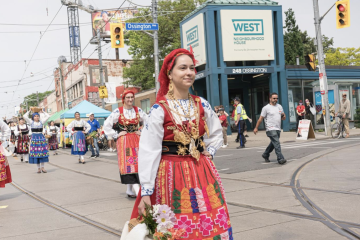The Chronicles of the Medieval Era: A Journey Through Time

Introduction to the Medieval Chronicles
The chronicles of the medieval period hold immense importance in understanding the cultural, social, and political fabric of medieval life. These historical accounts, penned by various authors across Europe, serve as vital resources for historians and enthusiasts alike, shedding light on events from the 5th to the 15th centuries. They depict the complexities of the era, encapsulating wars, religious transformations, and daily life, thus allowing readers a glimpse into a time that has significantly shaped contemporary society.
Historical Context and Creation
The medieval chronicles emerged notably after the fall of the Roman Empire, during a time characterized by feudalism and the rise of kingdoms. Notable thinkers, such as Geoffrey of Monmouth and James of Vitry, crafted their narratives by drawing on oral histories, historical data, and literature of the time. Their works often aimed to document events accurately, while also promoting a particular moral lesson or national pride.
One of the most significant examples is the “Chronicon” written by the monk St. Bede, who chronicled the history of England. This work illustrates the interconnection between religion and history, emphasizing the role of the Church through the ages. Similarly, chronicles like the “Anglo-Saxon Chronicle” provide detailed accounts that reflect a variety of perspectives, including those of the Saxons, Vikings, and Normans.
Key Features of Medieval Chronicles
Medieval chronicles vary in style and content, but several key features unite them. Most notably, they follow a chronological approach, noting significant events year by year. This format allows the reader to piece together the unfolding narrative of history systematically. Additionally, chronicles often include genealogies of kings and important figures, reflecting the importance of lineage and succession during this era.
The languages in which these chronicles were written also highlight their diversity. From Latin, which was used for official records, to vernacular languages that made stories accessible to the masses, the choice of language often indicated the intended audience.
The Significance of Medieval Chronicles Today
Today, medieval chronicles are crucial in historical research for understanding the socio-political dynamics of the time. They offer a narrative thread that connects modern readers to a past that dramatically influences contemporary societal structures. Moreover, the chronicles provide insights into cultural heritage, illustrating the evolution of literature and storytelling.
Conclusion: The Lasting Impact of Chronicles
In conclusion, the chronicles of the medieval period form an indispensable part of historical literature that continues to inform and fascinate. Their significance extends beyond mere documentation of events; they are reflections of the human experience, encapsulating the essence of an era marked by profound change and challenge. As scholars delve deeper into these texts in the quest for historical accuracy, readers can appreciate the chronicles as a vital link to understanding our collective past, paving the way for future explorations in history.







